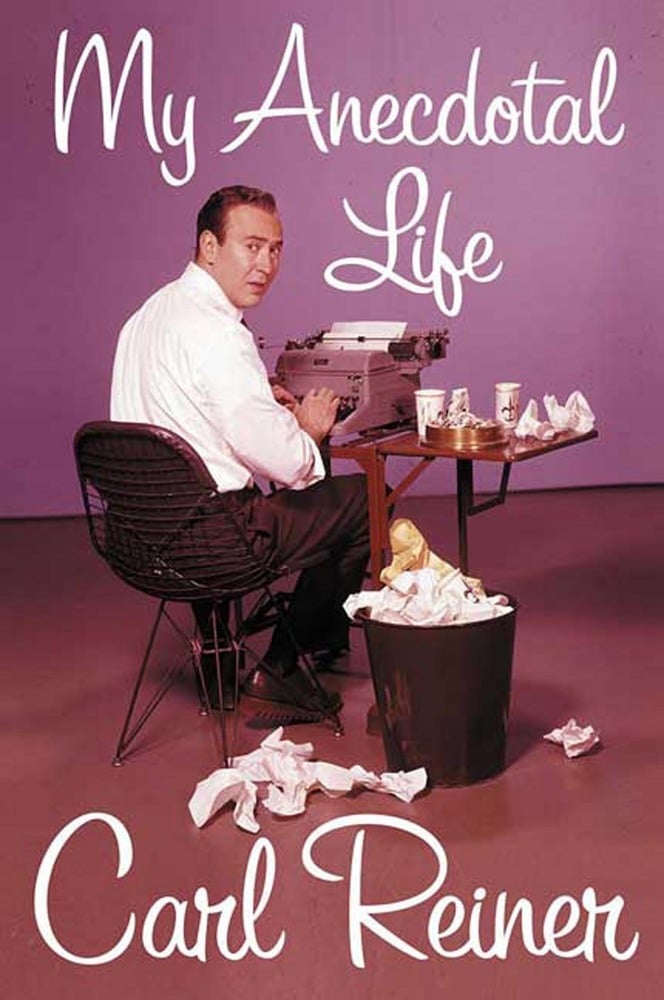I’ll let you in on a secret about Carl Reiner, the ingenious and versatile writer-actor-director – and father of writer-actor-director Rob Reiner – who broke through as a “second banana” to Sid Caesar and rose to comedy’s front ranks as creator of The Dick Van Dyke Show, and who died Monday at 98.
You probably don’t know his best film. What, you scream? I hear you say you’ve seen the Steve Martin films he directed – All of Me, Dead Men Don’t Wear Plaid, The Man With Two Brains and The Jerk. And what about Oh, God! starring George Burns and Fort Worth’s own John Denver? And the 1970 comedy Where’s Poppa? And, I hear you scream (why are you screaming anyway?), you’ve seen The Dick Van Dyke Show over and over again.
Yep, you’ve seen those. I have, too.
But have you seen The Comic? What? I hear you scream again. The Comic? What the hell is that?!
Stop screaming and I’ll tell you.
I was watching some film many years ago at the Wedgewood Theatre when the teenage me saw a preview for The Comic, a film written and directed by Reiner. The 1969 movie had Dick Van Dyke, a longtime favorite. It had Mickey Rooney, usually a reliable film star (save Breakfast at Tiffany’s, but that’s another story).
So, I resolved to head back in a few weeks and check it out. There were lots of pratfalls and funny moments in the preview, so why not?
I did and was enormously disappointed as my teenager interest in broad comedy, explosions and action were overwhelmed by a story about a man who turned out to be an alcoholic and didn’t even recognize his own son. I thought it was awful. This story of a brilliant silent film comic, Billy Bright, whose ego tears apart his life was roughly modeled on the great silent comedians like Stan Laurel, Charlie Chaplin, Harold Lloyd and Buster Keaton. But, unlike some of the other popular movies of the time, it didn’t have hippies and cool music. It had a soundtrack that used the tune of Yes, We Have No Bananas, to great effect and some cool recreations of the silent movie era. I did like that Van Dyke, a brilliant physical comedian, got to do some of that type of comedy in the recreations but for teenaged, worldly me, it didn’t cut it.
I also couldn’t get it out of my mind.
I caught it once on television and after telling myself and others how awful it was, I watched the whole thing again.
Yeah, I couldn’t get it out of my mind.
Then, at the University of Maryland, my friend Charlie and I were trying to work out some David Bowie song on guitar. We talked about how Bowie used characters and makeup to hide behind these characters when he sang.
It’s kind of like comedians hiding behind their jokes, he said.
I’m sure I nodded yes as I plucked some G chord on the guitar.
You ever seen The Comic? Charlie asked.
I nodded again, ready to tell him how awful I thought it was.
Charlie said, “Remember during Billy Bright’s funeral, when the guy says, ‘Presidents and kings are expendable, but not clowns like Billy Bright’”?
Clowns, people who make us laugh and think, like Bowie, are more important than any kings and presidents, Charlie said.
It all came together then. The movie made sense and I knew Reiner was a flippin’ genius. Now I knew why I couldn’t forget the damn film.
It would be an easy film to forget because it’s not an easy film to see these days. I think you can get it on DVD now, but the easiest way is to simply watch it on YouTube, in three parts.
The “hat rack” scene, a recreation of a silent movie type film, is genius.
You may hate it. But believe me, you won’t forget it. The last 10 minutes of the film are probably some of the most heartbreaking in cinema and should have won Van Dyke an Oscar. Catch it if you can.
Thanks, Carl Reiner. To paraphrase the film, presidents and kings are expendable, but not clowns like Carl Reiner.






